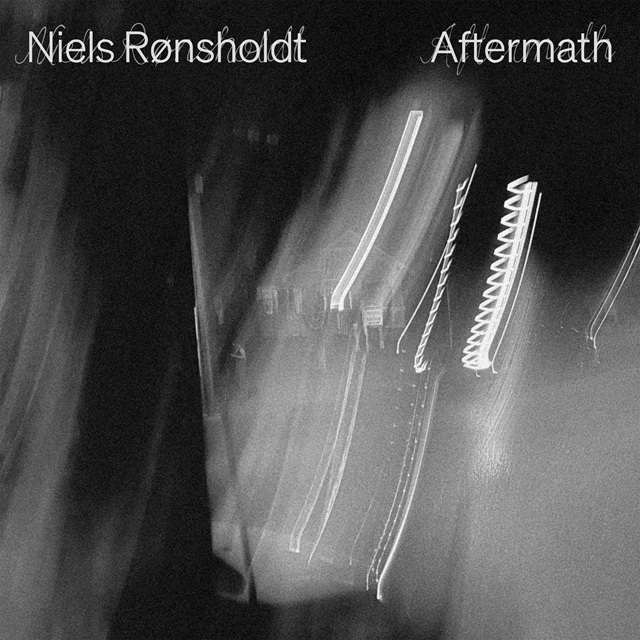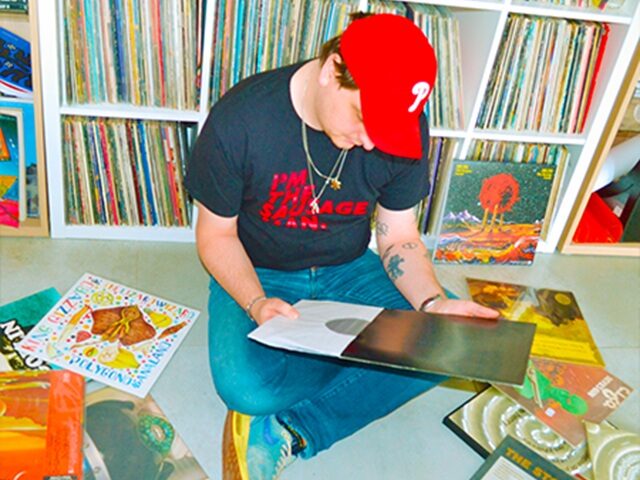
A haunting array of spaciously atmospheric rock and folk cohesion shines on Aftermath, the new album from Danish artist Niels Rønsholdt. The melodic, caressing productions enjoyably contrast with grim thematic pursuits—chronicling environmental and societal decay across various cities in America. Rønsholdt, trained as a classical composer, compels here with an Americana aesthetic—favoring memorable vocal rises, twangy guitars, and steady rhythmic ruminations. “I see Aftermath as a natural continuation of my work with what I call ‘method composition,’” Rønsholdt explains. “I work conceptually with personas and narratives, and here I describe what I encounter in the language of the place itself.”
Scenic lyricism and climactic instrumentation are frequent points of captivation throughout. “Yesterday’s rain’s still dropping from homes in the city,” Rønsholdt sings on “Marcy Ave,” whose gentle piano and plucky guitar bolster imagery of rain, snow, and an overall sense of foreboding in a New York City setting. Elsewhere, depictions of a “Memphis Motel” exude a seedy sense of hopelessness, asking, “Are you scared? Are you excited?” amid lonesome guitar strains and contemplations of how one ended up “in this mess in the first place.” Settings are delivered with poetic descriptions, alongside the characters within them and their personal struggles.
“Nothing left to stay for,” Rønsholdt sings with aspirational reflection on “After Mardi Gras,” exploring what-ifs in the context of a fading celebration. People move on, much like migrating birds, and the “nothing left…” refrain is moving in that context. The gorgeous, trickling guitars and ghostly vocal work on “Williamsburg Wall” make for another standout on an album that enthralls with its thematic focus and folk/rock intertwining—particularly in the “no one makes it here” declaration.
Rønsholdt explains further: “The songs are also a reflection on the encounter with our own distorted reflection as Europeans in the U.S.: So much is familiar, so much points back to deep cultural memories and roots. And yet most of it is foreign and unapproachable. This feeling of having come home and being a visitor at the same time is the basis for the songs and the way they are sung.”
—
“Doe on the Roof” is also featured in the genre-based, best-of Spotify compilation Emerging Indie Rock.
We discovered this release via MusoSoup.





